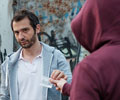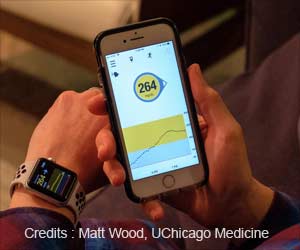Homosexuality and the increasing use of contaminated drug syringes are the main reasons for the rise in HIV infections in northeast India and also in major cities
Homosexuality and the increasing use of contaminated drug syringes are the main reasons for the rise in HIV infections in northeast India and also in major cities like Delhi, Mumbai and Chennai, states a new study.
"Poor knowledge of HIV has been found in groups of men who have sex with men. In Bangalore, for example, three in four men who have sex with men did not know how the virus is transmitted, and a large proportion of them engaged in unprotected sex with other men," says the UNAIDS/WHO 2006 AIDS Epidemic Update.India has about 5.2 million HIV infected people, according to estimates by the state-run National AIDS Control Organisation (NACO). The UN report, however, puts the number of infected people in India at 5.7 million, of which 5.2 million are adults in the age group of 15-49.
Based on analyses done by NACO and researchers, the report says there has been very little study on the role of sex between men, but recent data has thrown up some disturbing trends - HIV prevalence among homosexuals in Chennai is 6.8 percent and 9.6 percent in Mumbai.
"In some areas, a substantial proportion of men who have sex with other men also sell sex," the report says, citing a large study in Andhra Pradesh that says one in four men sold sex to other men.
"Using contaminated injecting drug equipment is the main risk factor for HIV infection in the northeast of India (especially in Manipur, Mizoram and Nagaland), and features increasingly in the epidemics of cities such as Chennai, Mumbai and New Delhi."
As in case of risk through homosexuality, the global report points to continued courting of danger by drug addicts using injectable substances.
The HIV/AIDS Update points out that in Chennai, 31 percent of injecting drug users were found to be HIV-infected.
Another study of men seeking treatment for sexually transmitted infections in Mumbai clinics showed that among those patients who injected drugs, 12 percent were HIV positive, 80 percent of who had recently (in the past three months) paid for sex and 27 percent of whom had themselves sold sex.
"Harm reduction programmes need to be extended and expanded as a matter of urgency in those parts of India with serious drug injecting-related HIV epidemics. Failing that, there is a possibility that the combination of injecting drug use and paid sex could lead to larger HIV epidemics," the global report warns.
As of 2006, several needle exchange programmes are operating in the northeast region, West Bengal and Delhi. However, only one project using substitution therapy has been started in the state of Manipur.
Taking a critical view of the interventions in India, the report states, "Currently, interventions among injecting drug users tend to be inconsistent, and too small and infrequent to yield demonstrable results."
The global report underlines that the extent and effectiveness of India's efforts to increase safe sex practices between sex workers and their clients, and between men who have sex with men (and their other sex partners) will likely determine the scale and development of India's HIV epidemic.
Source-IANS
SRM











